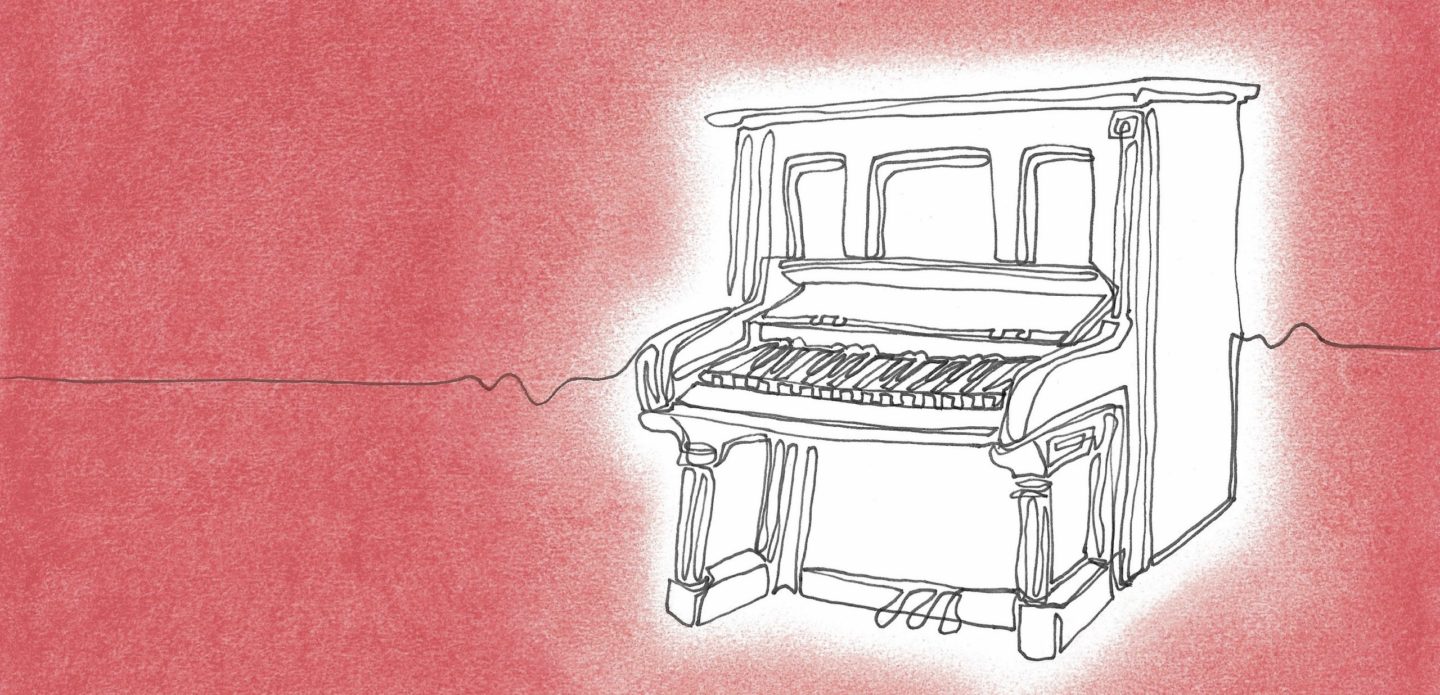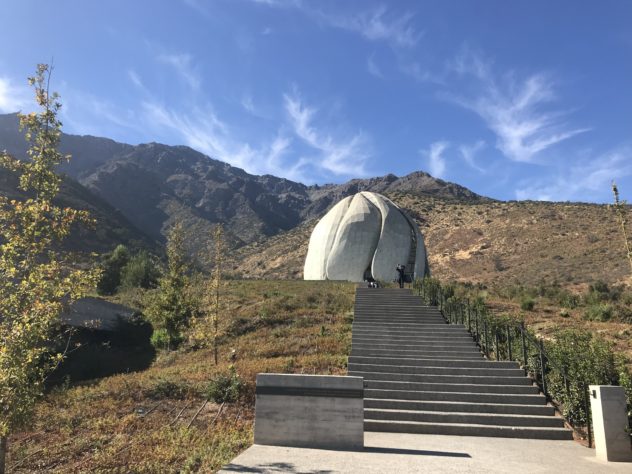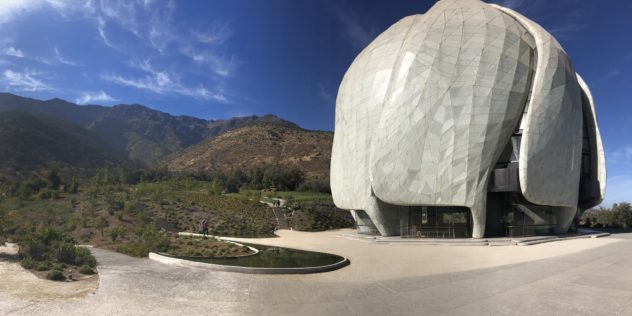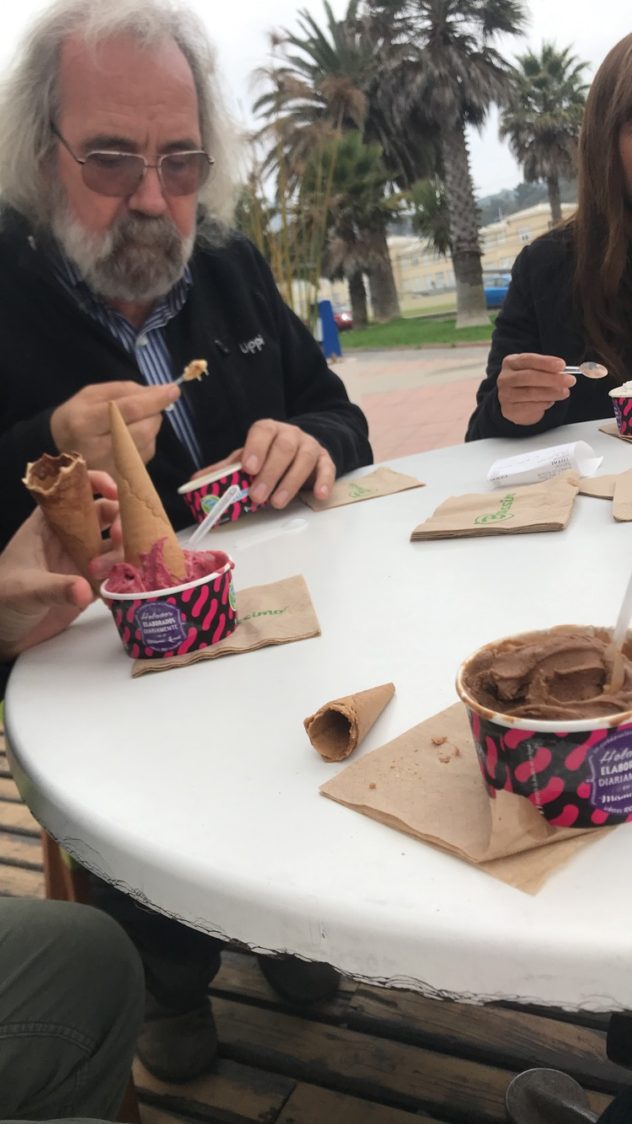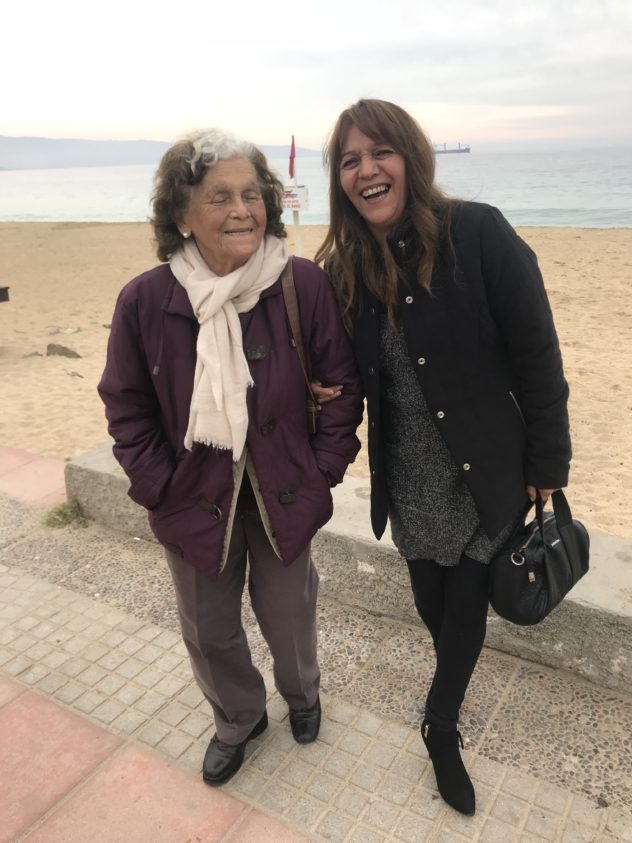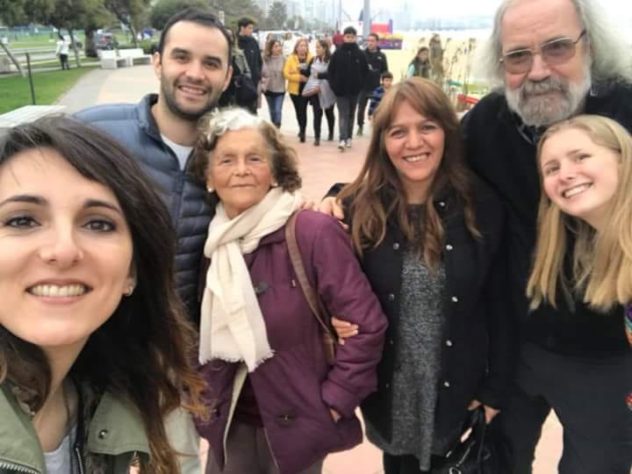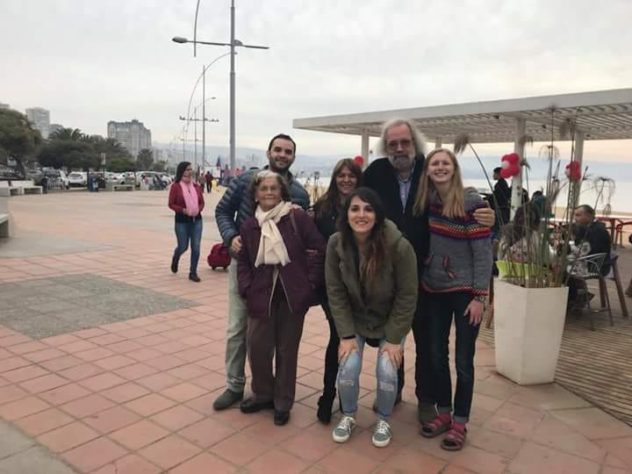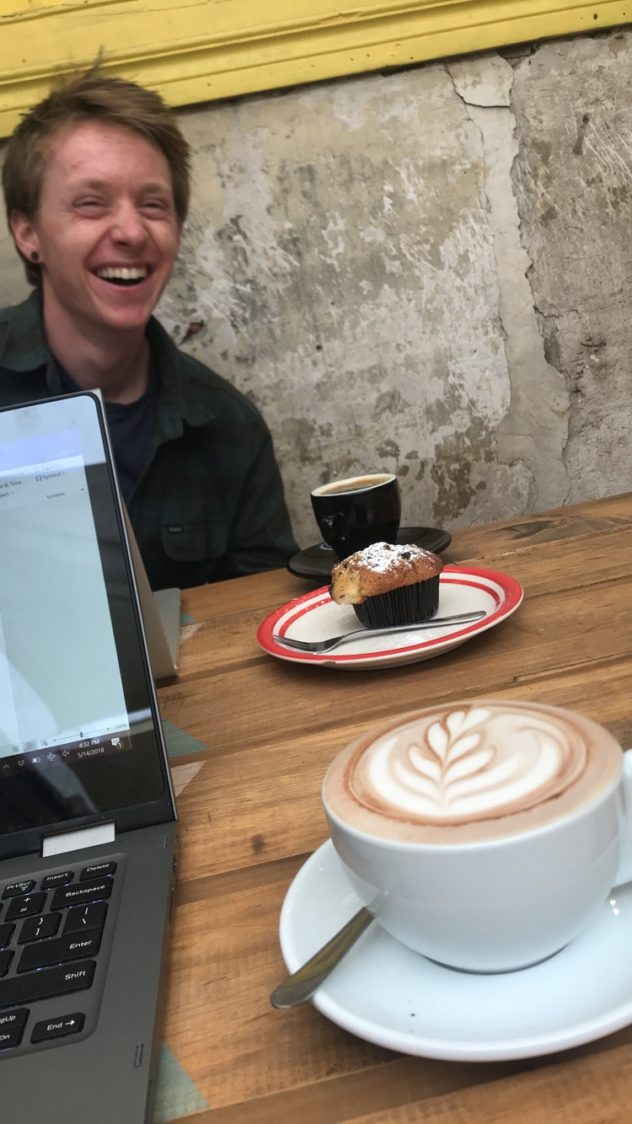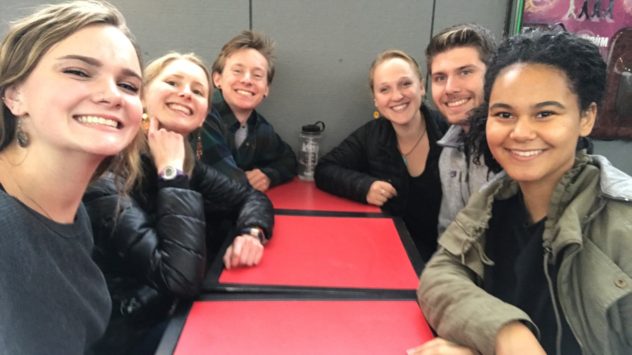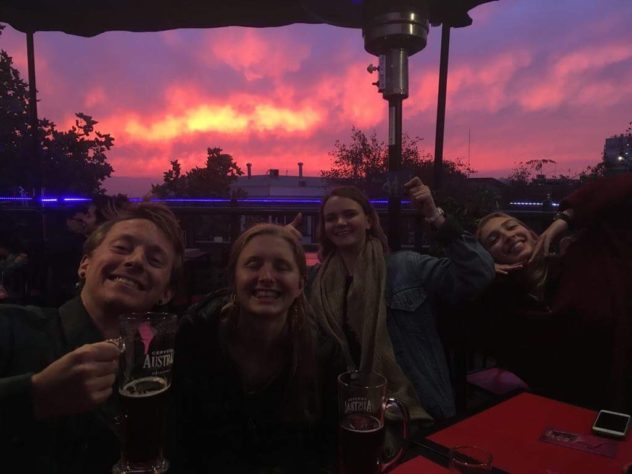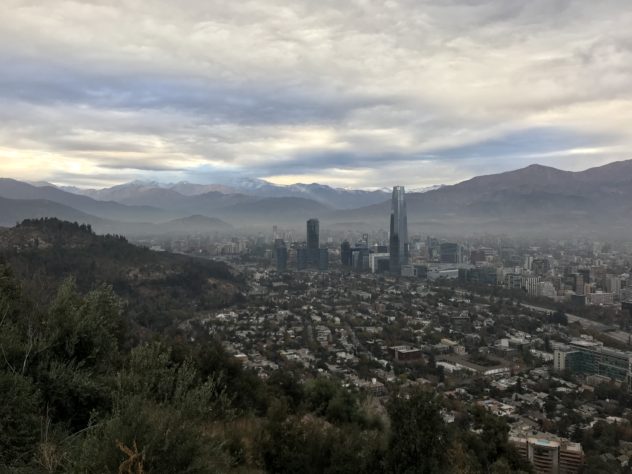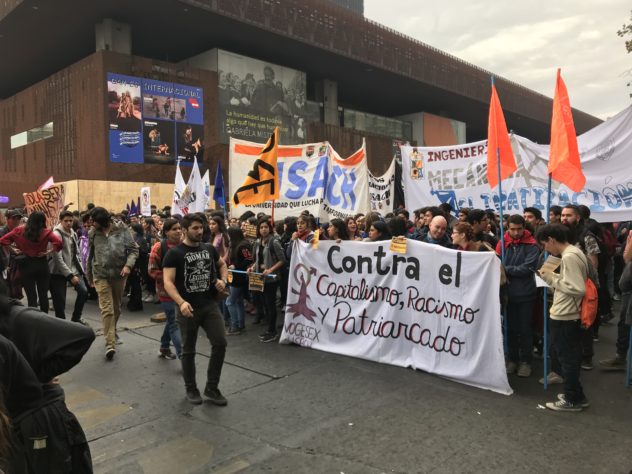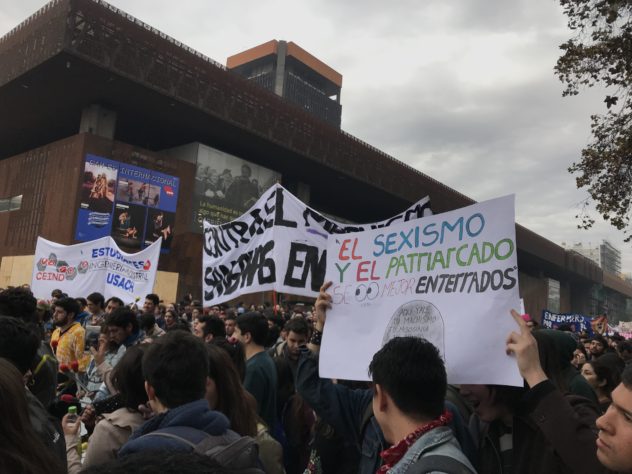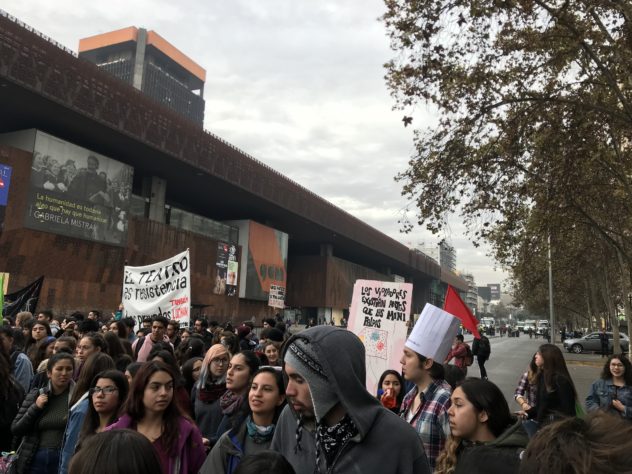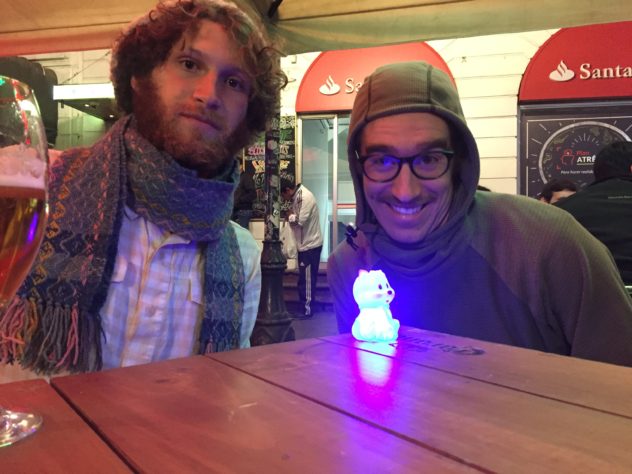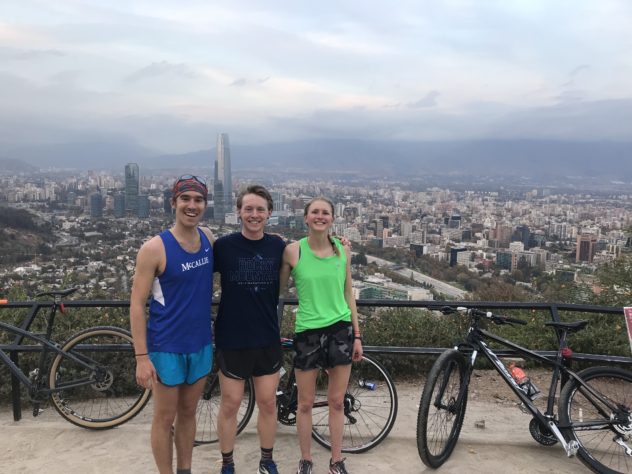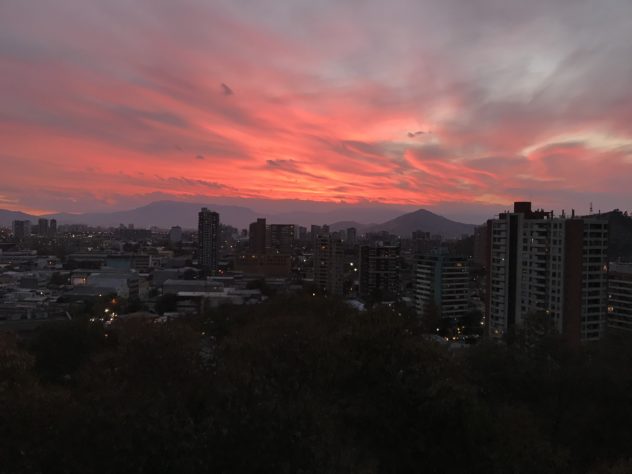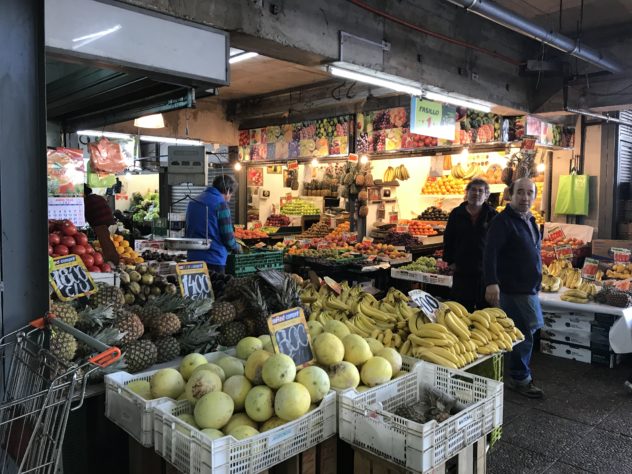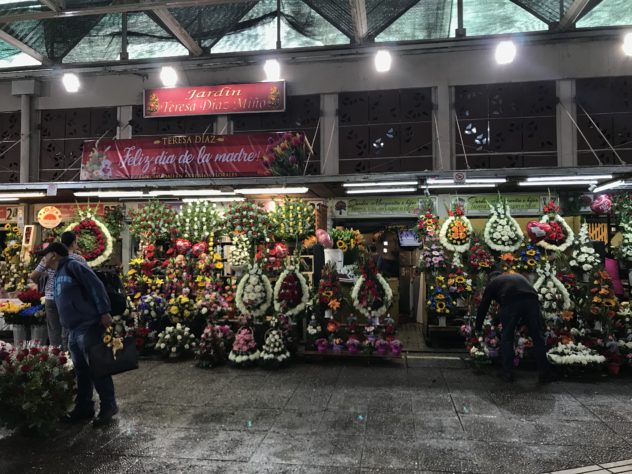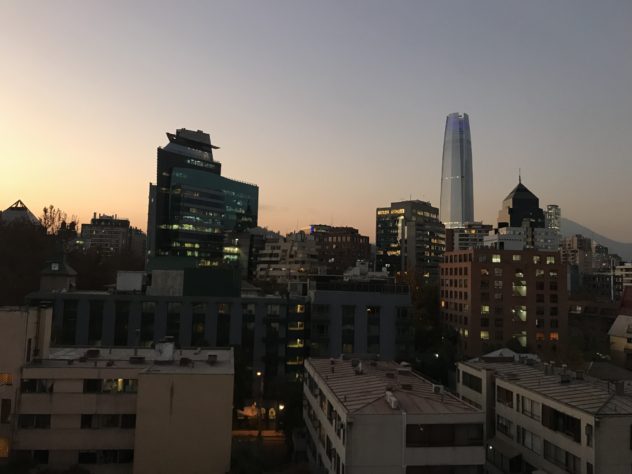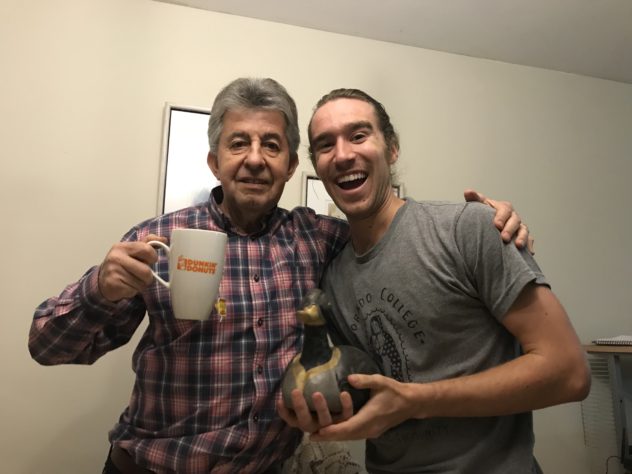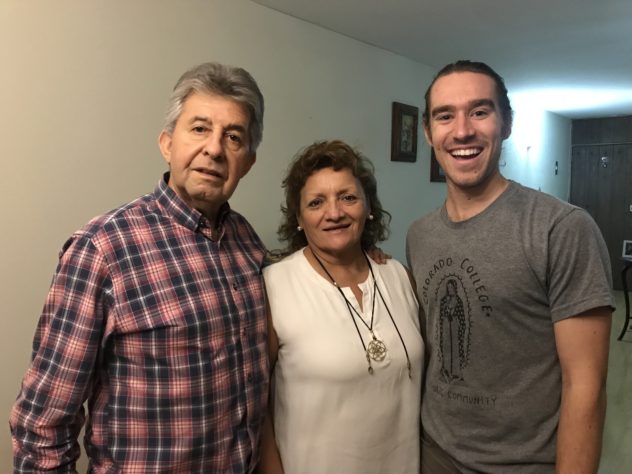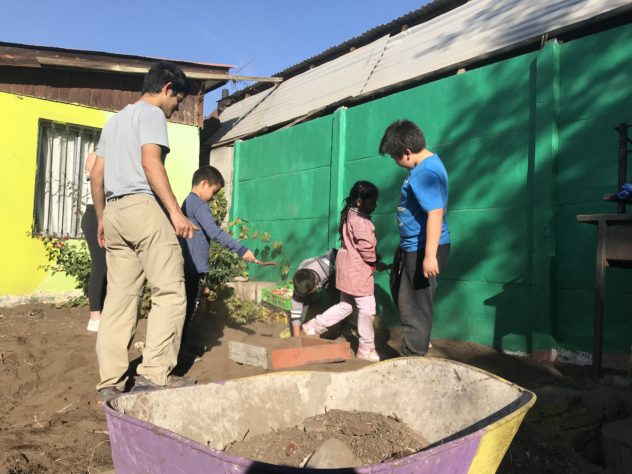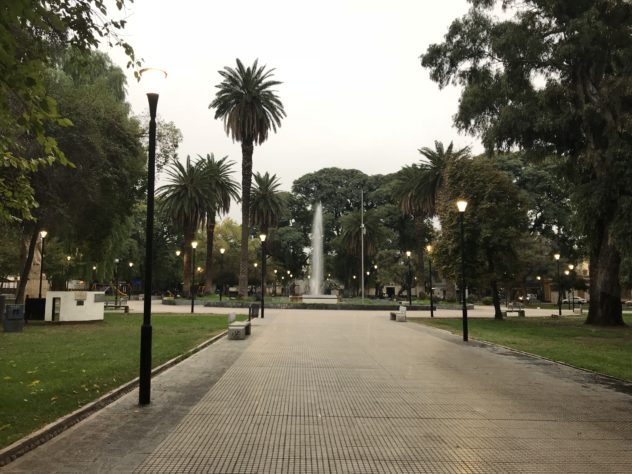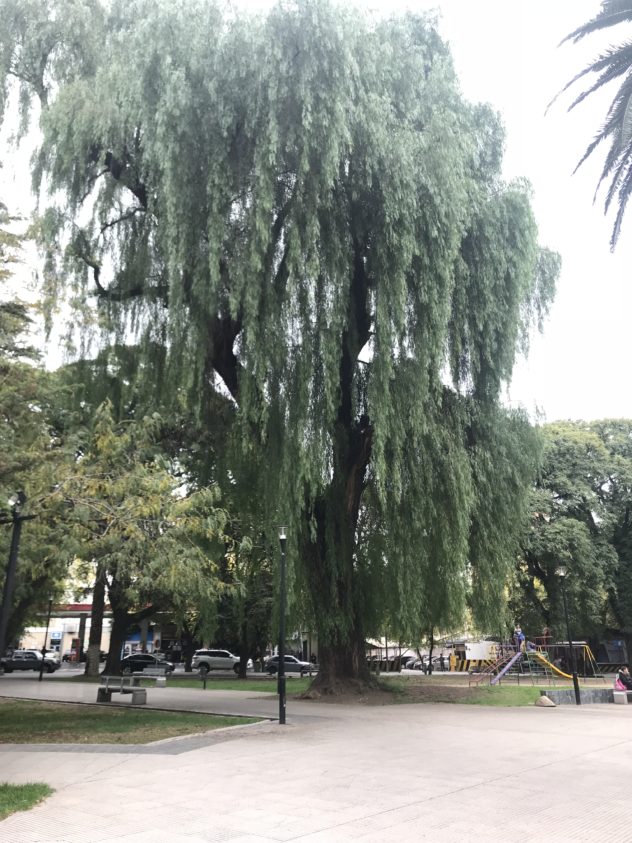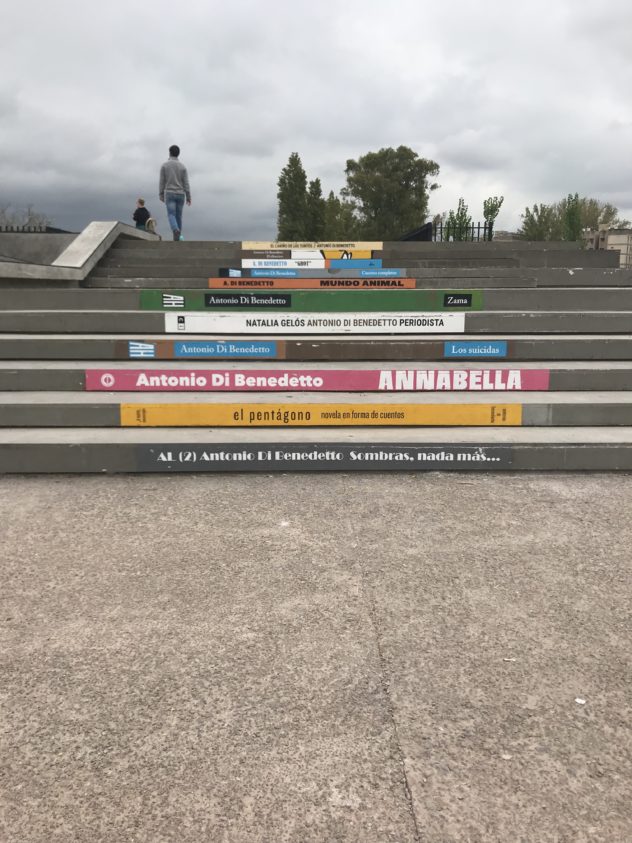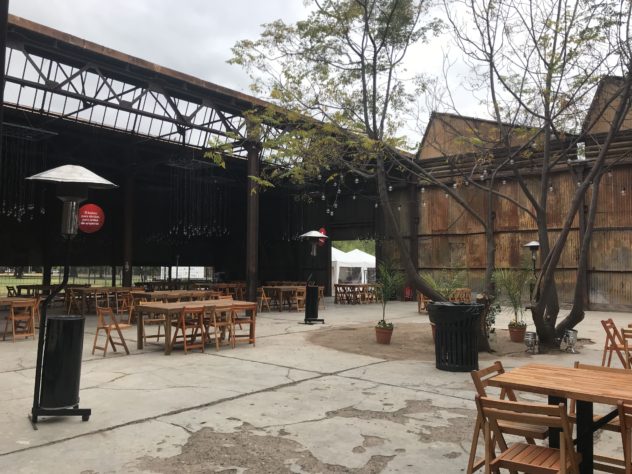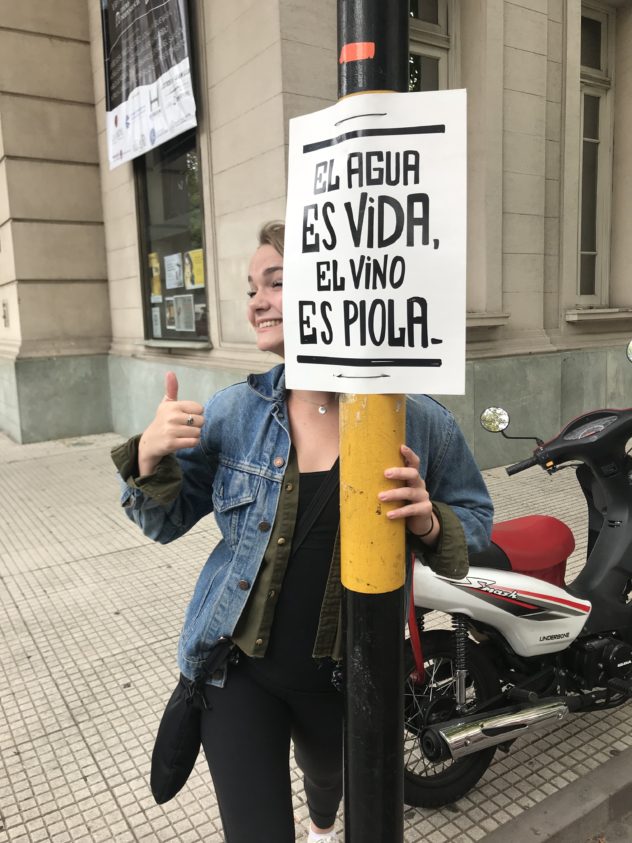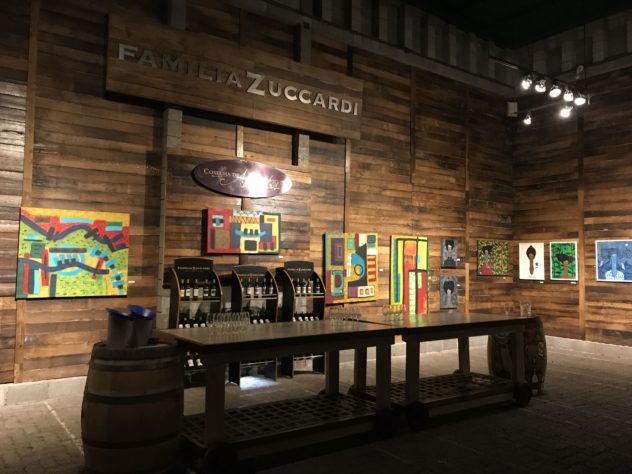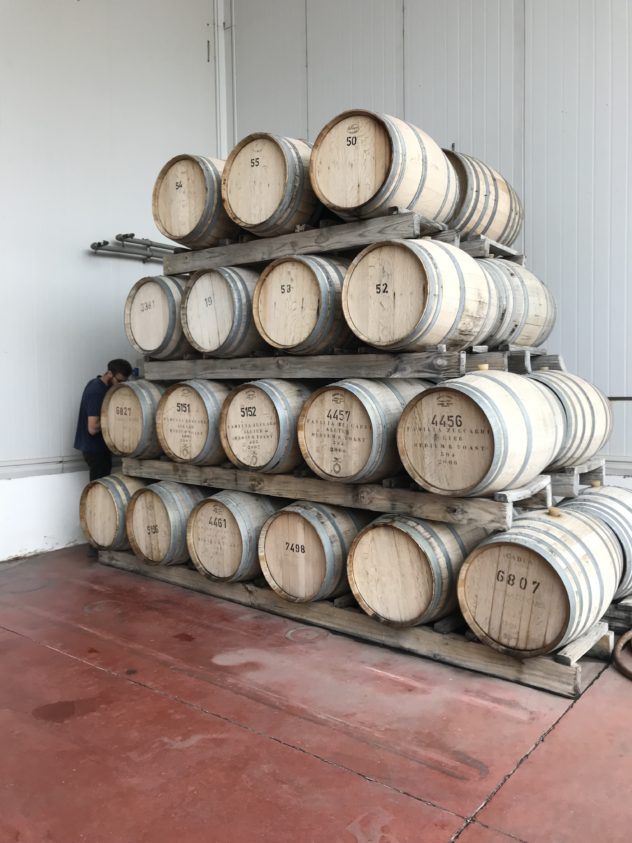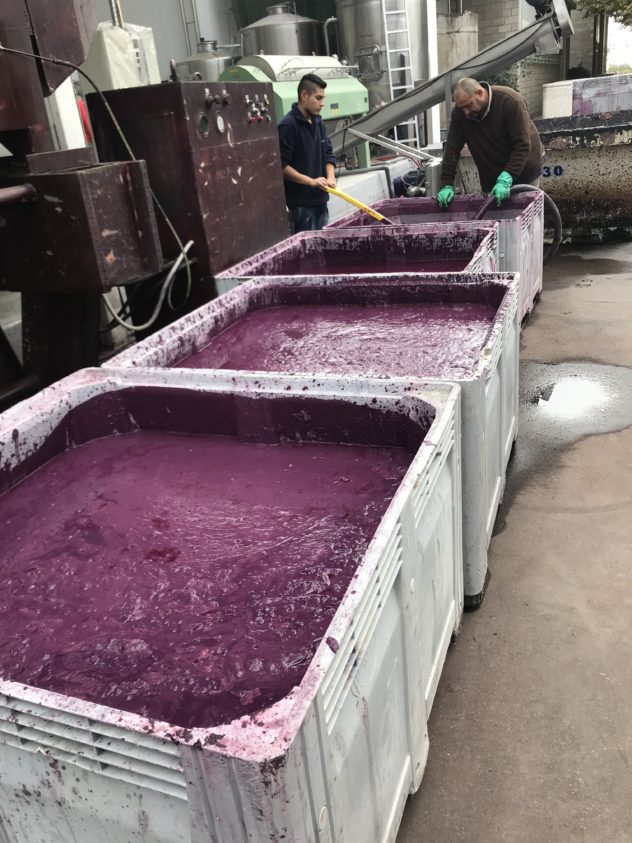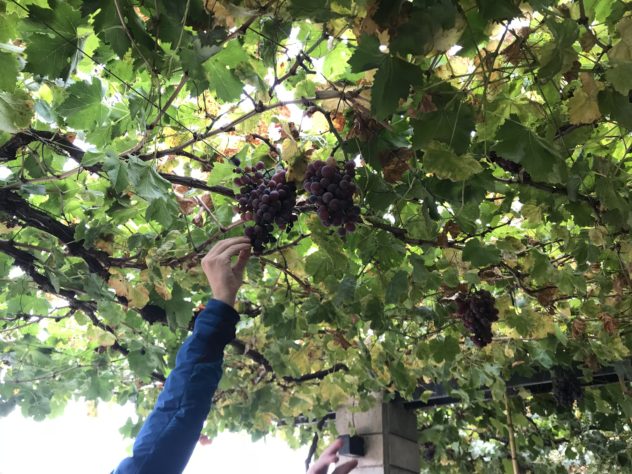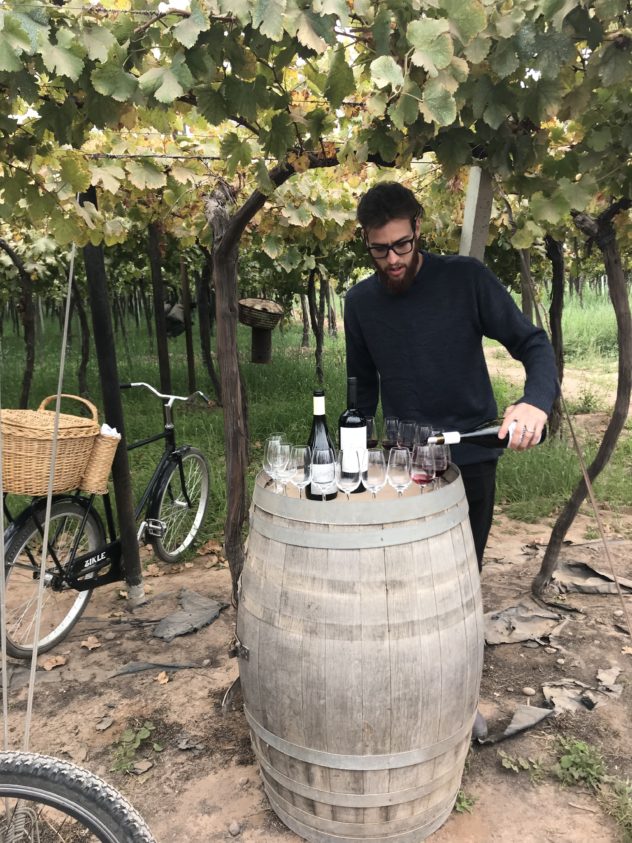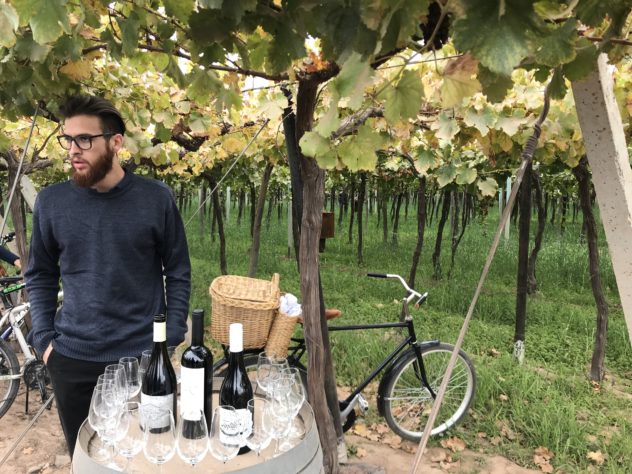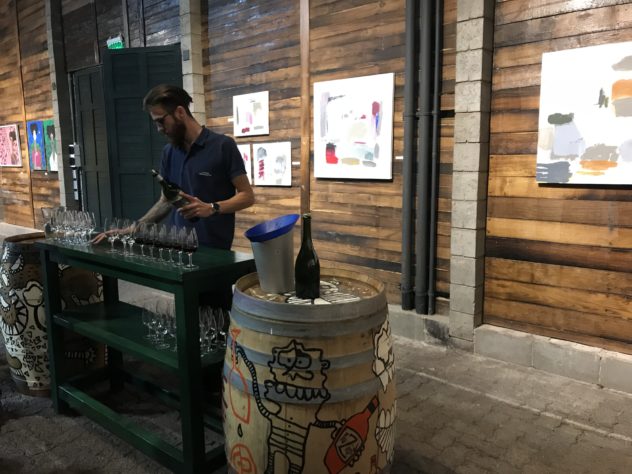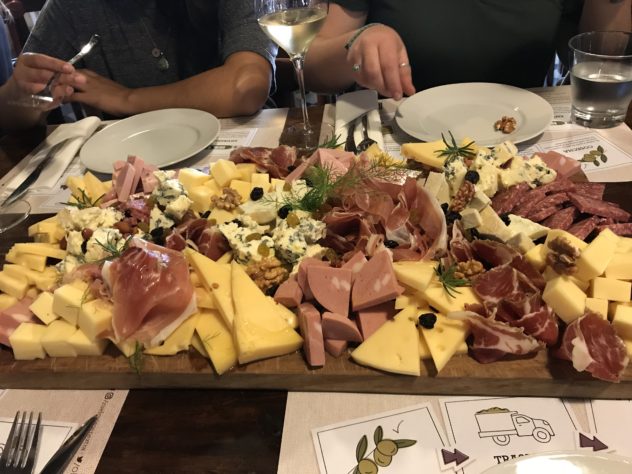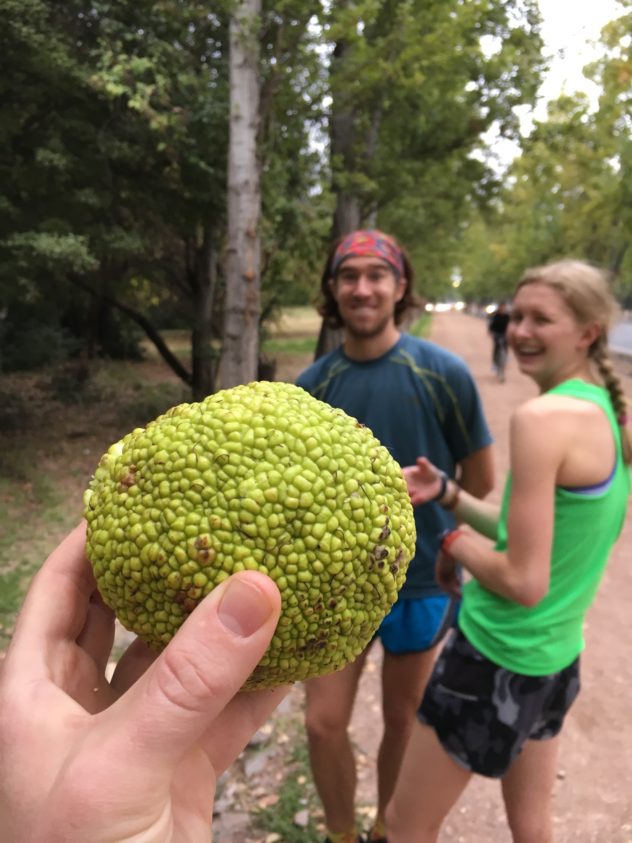Vocab Lesson
I’ve been asked by several people whether Cuban Spanish or Chilean Spanish is harder. The answer is they’re equally challenging. In Cuba, no one enunciates. In Chile, there are countless slang words, los chilenismos. Despite the challenge of the chilenismos, however, learning them has arguably been my favorite way to get to know Chilean culture. In fact, the chilenismos do a great job summing up some of my experiences – so here’s a brief vocab lesson.
Arriba de la pelota: “Above the ball”; you’re a little drunk, but not drunk drunk.
Bacán: Cool, sweet, groovy. A Spanish equivalent could be “genial.”
Caballero: A worker of some kind; a gentlemen that you would address as “sir.” I find this funny only because caballo means “horse” and caballero also can mean “knight.”
Cabro/a: The literal translation is “goat,” but it refers to some young guy or gal you don’t know well. Usually used when telling a funny or slightly stupid story – e.g., “And this cabro was caught picking his nose by the whole school!”
Cachaí: Got it? You follow me? This word is used so frequently it’s ridiculous. It also exemplifies a weird thing Chileans do with their conjugations. Cachaí comes from the verb “cachar,” to understand. Asking someone if they understand, using “cachar,” would normally be “Cachas?” But Chileans will often make this odd substitution with an accented i. I’ve also heard “Tenís…?” “Do you have…?” instead of “Tienes…?” and “Querís…?” “Do you want…?” instead of “Quieres…?” Just interesting.
Cachilupi: Like bacán; something good. E.g., “Paula, esta sopa de choclo es súper cachilupi.”
Chic@s / Chicxs: To refer to all genders, you’ll often see the masculine “o” replaced with an @ sign or an x to include everyone – same with tod@s / todxs. I dig this.
Chiquillos: Literally, “kids.” But everyone, our professors and IFSA staff alike, call us college students chiquillos and chiquillas.
Chuch: An exclamation like “Mish!” Isa will often go, “Chooch!” when she wants to say “Damn!” or “Sh*t!” It’s short for “chucha,” which actually has much worse meanings as well … careful how and when you use this one, folks.
Colación: A packed lunch. Paula always asks me if I’ll need the colación for school, meaning I have something in the afternoon and can’t come home for lunch. My colación always consists of a couple fruits – apple, pear, kiwis (always 3), and/or banana – plus maybe a small tomato/lettuce salad and leftovers from dinner the night before. Often rice or potatoes with veggie nuggets or a soy burger. I can’t complain.
Cueca: The traditional dance of Chile. It’s done by a male-female pair, and they imitate a courtship between a rooster and hen. It’s not pretty. Paula and Roberto aren’t fans, anyway.
De miedo: Another synonym for bacán. It’s an adjective that literally means “of fear,” so I think the English equivalent must be “wicked” or “sick.”
Éso: “That’s it.” Chileans use éso all the time when they’re organizing/arranging things, setting things up.
Fome: Boring.
Gallo/a: Like cabro/a, but refers to someone more grown up – a man or woman that you don’t well. E.g. “Ese gallo que me ayudó con el auto.” Can be slightly dismissive, like “That dude who was yelling on the street…” Gallo is actually the word for rooster in Spanish.
Garabato: A bad/curse word. “Mierda” is a garabato, for example.
Hueón: Can mean a million things. It refers to a guy or girl (hueona). It can be derogatory, loving, impatient, aggressive, indifferent. It can mean anything from “guy,” to “buddy,” to “dude,” to “jerk,” to “idiot,” to “a**hole.” It’s really all contextual. It also can be spelled “weón” or “huevón.” Oh, chilenismos.
Luka: Slang for money, or pesos.
Mish: Previously mentioned in another post, mish is like “Mira tú!” “Look at you!” Paula uses it at lot when I’ve done something that impresses her.
Palta: Avocado.
Pinchar: In Chile, “the one who calls, pays.” Whenever you make a call, you’re paying for the minutes. So, Chileans will do something called “pinchar,” in which they call someone, but hang up before their friend picks up. That way, their friend has to call them back to talk – and pay for the call themselves. The same was true of Cubans. If you called someone by typing *99 plus their number, you’d ensure that they’d pay for the call. Sneaky Latinos.
Poh: The most ubiquitous chilenismo there is. The internet claims it comes from “pues,” meaning, “well…” but I don’t believe that. Chileans tack poh onto just about any phrase, and it seems to be an emphasizer. “No, poh,” “Sí, po,” “Claro, poh” “Estoy con Miguel. Miguel, poh!” It’s EVERYWHERE. My guess is that it’s a shortening of “por supuesto,” meaning, “of course.” It just sort of implies “duh,” or “naturally.”
Ojo al charqui: I’ve never heard this one used, but the IFSA girls Alice and Claudia taught us that it means to pay close attention. “Charqui” is a shortening of “charquicán,” a typical Chilean meat dish. When you’re grilling charquicán on the back porch, you have to keep a close eye on it so that the birds don’t try to eat it. Thus, “ojo al charqui.” I just like the story behind it.
Otro: For some reason, Chileans use otro, “other,” to refer to something in the future. Such as, “Tienes clase el otro martes?” “Do you have class next Tuesday?” They have confused me numerous times with this one, since I think they mean to ask about something that happened the other day.
Schop: Big beers. Beers you get on tap, and in German-style steins. Cheap and delicious.
Sípo: As mentioned, a common affirmative response. It’s so natural that it sounds like one word instead of sí + poh.
Taco: Traffic. “Hay mucho taco” every morning and evening during rush hour. So much taco, in fact, that there are always policemen and women (Carabineros de Chile) directing traffic at large intersections.
Terremotear: We thought we had made this verb up ourselves – “to get very drunk, specifically off of terremotos,” but it in fact already exists. Chile is great.
Vaya no más: Paula says this to me after almost every meal. It literally means “go no more,” so I was so confused. I asked Claudia and Alice, and they explained that it means “leave without worry.” Paula usually says it when I say something like, “I need to go finish my homework” or, “I have to call my mom,” so “Vaya no más” must be something like, “say no more, you’re free to go.”
Ya: Similar to éso. When everything has been put in order, or you’re about to do something, you say “ya.” “Ya” literally means “already,” but it’s rarely used in that literal sense. Like when Paula yells that it’s dinner time, I’ll yell back, “Ya, vengo,” even though I’m not “already coming.”
These chilenismos only scratch the surface – there’s probably a hundred more. But these ones were some I heard/used a lot or just liked. Hope you’re as entertained as I am.
